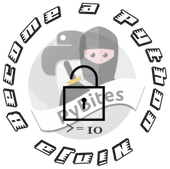“The more that you read, the more things you will know. The more that you learn, the more places you'll go.”
“Books are a uniquely portable magic.”
― Stephen King, On Writing: A Memoir of the Craft
A book, article or any piece read without proper underlining or note taking (marginalia) might as well been unread at all. Unfortunately I found out late, fortunately it is never too late to improve. In this post a couple of tools to better retain info, and some tricks to get more reading done.
Note taking
Evernote is probably my most important tool (as it is for many writers). Platform independent it works really well going everywhere (Mac at home, Android anywhere). It's indexing is superb (photos/scans included), tagging is powerful and you can easily chat/share with friends. I use the Web Clipper browser extension for desktop, adding stuff on Android is very easy too.
The importance of having my highlights and notes in Evernote is twofold: as an aid in writing the next article and to reread the essentials of for example a book (Charles Poliquin pointed out this leads to a much higher retention of the material).
Reading tools (Kindle centered)
For years now Kindle is my main reading device. The Paperwhite technology is awesome: adjusting light for any light intensity. Ever tried to read on an iPad in the Sun? Not fun. Or tried to fall asleep after staring too long at a smart phone screen? Hard! Kindle solves these problems.
I like the Amazon infrastructure. You can get almost any book in seconds, usually for a reasonable price. For other materials Send to Kindle is great: it lets you convert and deliver most formats to your device, with an option to store in their cloud. Notes, highlights and reading position are nicely synced across devices. I know, Apple iBooks does this too, I just like the Amazon way better.
For (common) epub to (Kindle) mobi conversion I use open source app Calibre.
One caveat is that Amazon only lets you export highlights from Amazon purchased books. You can use the Bookcision bookmarklet for this. For other books and materials on your kindle you need to copy (USB) the My Clippings.txt file stored on your Kindle. I use clippings.io to import, organize and export my Kindle notes to Evernote. Although I need to go through this manual process from time to time, I rest assured that every new highlight and note I make will eventually be available (indexed) in Evernote.
Batch read articles
I use Pocket for this purpose. I mostly consume books, but there are blogs/articles I should digest. Pocket's browser extension makes it easy to add articles (with a button in the upper bar or under the right-click menu, latter being useful on social media to bookmark articles without leaving the site). I also get a weekly curated recommendation email titled “We’ve found a few things you can save to Pocket” which often leads to serendipitious reading. In a similar trend they recently started the recommendations feature.
Learn via Audio
Listen to podcasts and audiobooks: this is a great way of complementing the reading and can be multitasked with doing aerobics, dish washing, driving ("turn your car into an university on wheels" said Brian Tracey) and the like. Audible is a great service, and there are just too many great Podcasts: one I find continuously inspiring is the Tim Ferriss show (deconstruction of skillsets of high performers, wide variety of guests). This podcast recommends Hardcode History, but I still have to check it out. I also should mention TED talks as an important source of inspiration and wisdom.
Read in small chunks
I am not a fast reader, but there is a lot of idle time you can use to get some of it done: waiting in line, cardio, lunch, etc. Most avid readers take a book with them everywhere they go, with reading devices/apps weight and size is not an issue anymore. In the article How to read more, Ryan Holiday states that reading should become a default, a reflex, not something you do as an activity. True: once you make this mind shift, you consume a lot more. Abandoning TV is also highly recommended (although I am always in favor of watching good movies).
Invest the time
Not only do you turn into a better reader by reading a lot, Stephen King said that "if you don't have time to read, you don't have the time (or the tools) to write. Simple as that" (again from On Writing)
- audible (1) ,
- better memory (1) ,
- evernote (1) ,
- kindle (2) ,
- note taking (1) ,
- pocket (1) ,
- podcasts (1) ,
- reading (7) ,
- ted talks (1) ,
- tools (8)
